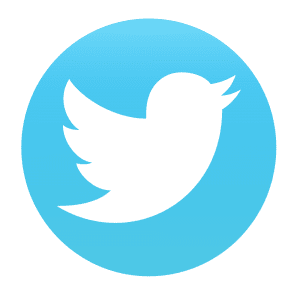How to Get High Organic Traffic from Search Engines
What Google SEO is All About

How to Get Massive Web Traffic From Google and other Search Engines
All internet marketers want to rank their websites high on Google's search results page: This is so since Google tops all other search engines on the internet in terms organic traffic generation.
And, there is no genuine, long-term, and highly rewarding website optimization technique than organic SEO. However, there are a number of SEO techniques that you can use to boost website traffic like social media optimization, mobile search optimization, E-mail marketing, and paid search (PPC).
To succeed in internet marketing through organic traffic, you need to put in more effort and this can work within a few months of starting, but can even take as long as 2 years depending on the competition you are facing with big boys in the 1st page of the search engines on your niche.
Software designers and programmers have made SEO to be a piece of cake today; this is so because through WordPress, you can have a well structured and SEO-friendly website without needing a website designer to do it for you.
Also, website promotional techniques can be done easily using a number of automated software; for example Hootsuite for social media optimization, Aweber for Email marketing, and so on.
But, the only problem is that these SEO software need capital investment since they work on a basis of "you get what you pay for", and are only useful when you pay for them for extra features that will help you generate more web traffic.
So, that is why I still prefer organic SEO when it comes to internet marketing since it is free to rank on the first page of Google's and other search engine results page, where you will get massive website traffic for free and for a long term, years and years to come without paying a single cent.
Ranking high on Google search results page is not a rocket science; all you need to do is optimize your site for users and search engine robots; period. If you do so, Google will reward you hugely with a massive traffic and a guaranteed high conversion rate.
Whether you are in affiliate marketing, content marketing for Google AdSense earning program, or just promoting your own product online, just do your part, which is to write quality and original content for users and adhere to a few search engine rules.
The main job of Google and any other search engine out there is to serve the Internet users with the information they need online, and do it as fast as possible by selecting and listing the best few pages that have all that users may need among several millions of web-pages that are talking about the same topic.
So, it is not always about optimizing your website for search engines, search engine algorithms keep changing every day to become smarter, and focusing on old SEO techniques like keyword optimization and backlinks alone will make you a terrible failure: And this is why most internet marketers after years of hard work don't get organic web traffic and the conversion rate they want unless they use paid ads and software, which also do not guarantee success when you have poor content that will not please your site users.
This guide is broken into various parts of organic SEO; both On-page and off-pageSEO techniques that you need to use for impressive organic traffic before embarking on extensive free or paid website promotional techniques for more traffic and high conversion rate.
A) Basic Search Engine Optimization
1. Unique and Accurate Page Titles
Web crawlers start understanding the content of your web-page right from its title: Ensure that your titles are original and accurate; stressing on the main point or idea you want to put across.
On the other hand; include researched and high ranking keywords in your titles for search engine consumption; while still making your titles catchy; having it in mind that your content is for human use.
2. Use Meta Tags and Descriptions
Meta tags and descriptions will show in the search engine results page; these are the summary of your page's content.
Your meta tags should include the main keywords you are going to exploit on the body of your web page; so that web spiders can crawl and index your page appropriately.
On the other hand; use clear and precise description to summarize your content for the humans; so that they know what to expect on your page before actually clicking through to your content.

B) Working on Site's Structure
1. URL Structure
The url structure of your web-page should be descriptive; including the main keywords: Web crawlers should be able to understand the content of your web-page form the url of that page; so that they serve the relevant web-pages to the internet users depending on the search query they use.
On the other hand; meaning full urls have a significant impact on the conversion rate; since humans will be able read them and understand the relevancy of the content; and consequently being converted into a visitor.
If you are using a content management system (CMS) such WordPress; ensure that you edit your permalinks to read exactly what the page is talking about.
Finally; your website URL should also include the main keyword in it; so that if you are a PC retailer, your website will include a PC retailer somewhere.
2. Site Navigation
Make it easy for your website's visitor to navigate around: Provide links to all your pages using relevant anchor tags; so that your visitors get more information concerning relevant topics you have written about on other pages.
C) Content Optimization
1. Offer Quality and Unique Content
Having it in mind that content is king; strive to offer original and quality contents that cannot be found anywhere else.
Before creating your contents and publishing them; ensure that you do sufficient keyword research using keyword tools available on the internet such as the Google Keyword Planner found in AdWords account.
While creating your content; be sure to use your researched keywords naturally throughout the page to maintain a good flow; and also to avoid spamming the search engines.
2. Use Anchor Text
Using your keywords as anchor text; provide links to the pages within your website; with relevant topics as the anchor text.
On the other hand; if necessary, you can provide links using these keywords as anchor text linking to other relevant sites; with good reputation and quality content to offer more insight to your visitors
Avoid linking to irrelevant sites with low quality content as this will hurt your web-page ranking; or even worse the whole website ranking.
3. Optimize Page Visibility Using Images
Web crawlers are in love with images; utilize images on your web-pages so that they are fully optimized for search engine consumption.
Use image description and caption text boxes to describe what your web-page content is all about; ensuring that you include all the necessary keywords you expect to rank high for.
Use quality and large images on your web-page as these are always doing better in search engine results page.
On the other hand; be sure to use your own images; or buy from sites selling images online; or otherwise find the rights to use free images from sites like Google Imagesoffering images and photos for free use.
Make sure you read and understand the terms of use of all images you find on the net to avoid legal charges against you.
4. Make Use of Headings
Separating your content into different heading has a significant impact on both search engine and human optimization.
Provide headings and sub-headings with quality and relevant keywords depending on the topic of that heading or sub-heading.
If you are using plain HyperText Markup Language (HTML); utilize in your content page the H1, H2, H3 and so on; so that emphasis is made depending on the importance of the keywords on your titles and sub-titles.
D) Optimize Your Site for Web-Crawlers
1. The Robots Exclusion Protocol (Robots.txt)
Web-designers/developers use this file to direct the web-crawlers on how they should crawl and index their web-pages.
However; using robots.txt needs sufficient web-development expertise; as it can extremely harm your web-pages visibility if not used correctly.
Ensure that you locate robot.txt files in the top-level directory of your web-server for it to function as it should; otherwise, you will compromise your site's crawling by the search engine robots.
2. Using rel="nofollow"
Similar to Robot.txt; using rel="nofollow" requires extra care. This nofollow attribute is used to direct web-crawlers on which links not to follow and crawl on a web-page.
Some web-designers use this attribute to discourage spamming; or if the content of the page is not for public view.
Whichever reason you use it for, ensure that you counter-check your links so that you don't use nofollow attribute inappropriately and prevent search engine robots from crawling your important web-pages.

E) Mobile SEO
The majority of internet users today use mobile phones and other hand-held device to access information from the internet.
You need to notify Google crawlers of the mobile version of your website so that it is optimized for the users using mobile devices to search for information through the search engine.
On the other hand; ensure that you use mobile friendly images; and give clear directives on how to use the site with mobile devices.
If you are using a CMS like WordPress; ensure that your website is responsive by using WordPress themes that are mobile optimized; and can re-size to fit on small screens as well.

F) Promote and Analyze your Site
1. Content Marketing
Now that you have satisfied Google's SEO recommendations and most probably your site is enjoying high rankings; embark on extensive content marketing to promote your website's contents.
For you to convert more visitors into leads, so that your site's conversion rate remains high every time; taking your site to the top in SERP is not enough; and without effective content marketing strategy; your site's performance will be compromised.
2. Website Analysis
Analyzing your site's performance will assist you to calculate your return on investment (ROI); whether your SEO efforts are rewarded effectively.
There are a number of website analytic tools out there; Google Analytics being one of them with a number of features to analyze your site's performance.
On the other hand; utilize free Google Webmaster tools to get more insight about your page visits; and a number of data that will help you evaluate your ROI.
Getting your SEO right for high Google ranks is that simple: And since Google is the biggest search engine in the internet; all major search engines such as Yahoo and Bing will like your content and rank your website higher.



Comment Policy : The owner of this blog reserves the right to edit or delete any comments submitted to the blog without notice. This comment policy is subject to change at any time. If you have any questions on the commenting policy, please let us know at [blog contact information]..